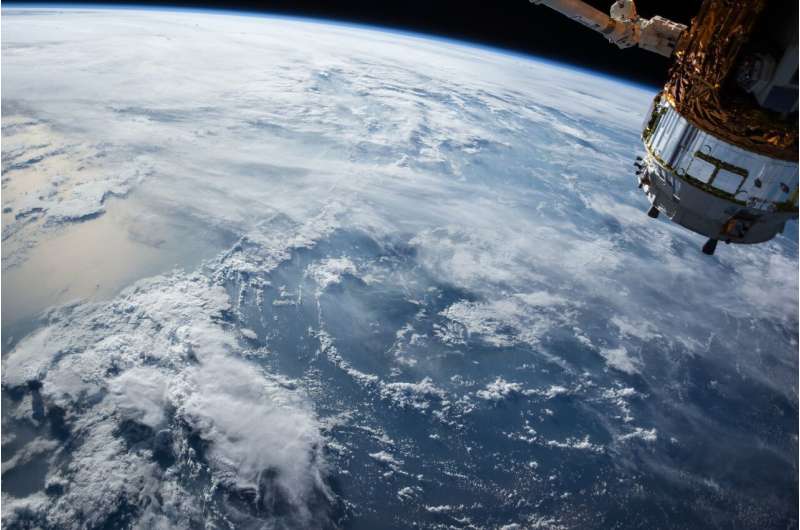Fulfilling a dream: To study Earth from space

During her childhood in northern Maine, Jessica Meir often stared at the night sky and wondered what it would be like to observe earth from space.
In a few weeks, she'll get to do it.
The UC San Diego graduate is scheduled to board a Soyuz MS-15 spacecraft in Kazakhstan on Sept. 25 and roar into orbit with two crew mates. Hours later, they will arrive at the International Space Station where Meir, a NASA astronaut, will spend six months conducting research.
The 42-year-old Meir (pronounced meer) earned her doctorate at UCSD's Scripps Institution of Oceanography. She spent most of her time studying physiology in extreme environments. Meir had no idea that her research would eventually help her earn a spot in NASA's elite astronaut corps.
Meir is currently in Star City, Russia, undergoing final training for her upcoming flight. She spoke by phone with the San Diego Union-Tribune. The interview has been lightly edited for continuity and length.
Q: I've interviewed a dozen or more astronauts over the years and more than a few have said that experiencing space travel profoundly changed how they thought about the world and about people. Have you been thinking about how this mission may change you?
A: I have given that a lot of thought. I think (author) Frank White described it as the 'overview effect.' It affects you in two main ways. First of all, in appreciating how fragile and how special our home planet earth is. Seeing that very thin layer of the atmosphere, seeing the oceans, seeing all the land forms.
I'm quite an avid environmentalist. Of course, a lot of that goes back to my time at the Scripps Institution of Oceanography, and understanding the remarkable biodiversity we have here on our home planet.
The second factor is understanding how insignificant we are as a species in our world, in the solar system, and in the universe. I think that really does shift your perspective as a human and I'm very much looking forward to it.
Q: A newspaper recently described you as being fearless. Is that how you think of yourself?
A: I'm not sure if I think of myself that way. I think some healthy fear is usually a good thing. But I think as astronauts we really rely on our training so much in any situation that you might consider to be risky. We go back to those procedures that we performed again and again and again. That really helps us do what needs to be done in any dangerous or risky situation.
Q: You're going to be working on scores of scientific experiments on space station. Could you tell me about one that holds special appeal for you?
A: My background is looking at the physiology of animals in extreme environments. Now, I will be the animal in the extreme environment. One of the big areas of research on the space station is understanding how spaceflight in a microgravity environment affects the human body. There are some real interesting studies right now that I will be part of.
One of them is looking at the health of our blood vessels. We've actually seen on some recent experiments that blood vessel walls—the walls of our arteries—actually get thicker and thicker in space. In a six-month mission it is equivalent to 20 years of aging. It's a really important process to understand in terms of the health of astronauts.
Q: Are you ready for the changes it's going to make in your body? I've seen many photos of the facial puffiness of astronauts who've been up there for a while.
A: Yeah. That's just a normal part of the process. Your body does adapt. It is pretty remarkable how resilient the human body is, how it can get used to whatever situation we throw at it. The nice thing now is we have decades of research looking at things like bone density loss and muscle atrophy, and we're good at counter-acting those deleterious effects just using the amazing exercise equipment we have on board the space station. We're ready.
Q: Is there another experiment that really appeals to you?
A: One of the really interesting things we have up there is called the biofabrication facility. This is sort of a technology demonstration. The goal is to be able to one day make bio-artificial tissues and organs in space and use them for organ transplant procedures down here on earth.
We're always at a deficit for available organs for patients that need them. People have looked at trying to grow these types of tissues and organs on the ground. One of the things they have to do is put a support structure in place and that often has deleterious effects on the tissues.
The hypothesis is that in the microgravity environment you won't need these support structures, and that will enable us to grow tissues and eventually organs in space that could be used for patients down on earth. Pretty cutting edge stuff.
Q: You'll be on space station for six months. Is it possible to get home sick even though you can look out the window at the earth?
A: I think that I will really be in awe for a good portion of the mission and it will go by quite quickly. But of course we will miss the things that we have at home, our families, our friends, our loved ones. I will really miss nature. To not have any of those plants and trees and the fresh air and water around you should affect me quite profoundly.
I've heard it (said) that you have this amazing window—you see all of the beauty on the planet, but you can't actually experience or touch any of it.
©2019 The San Diego Union-Tribune
Distributed by Tribune Content Agency, LLC.


















